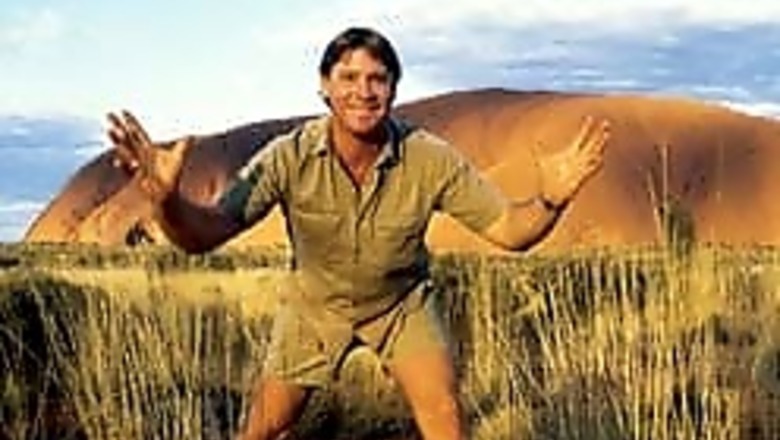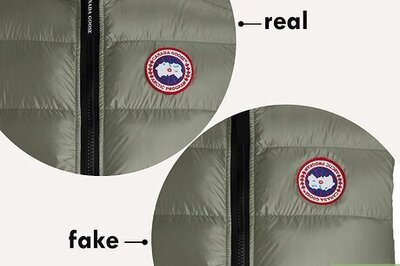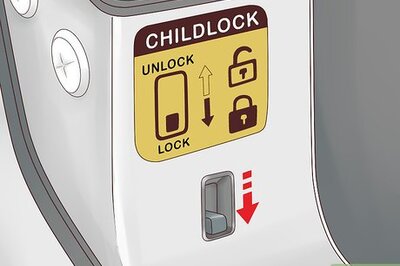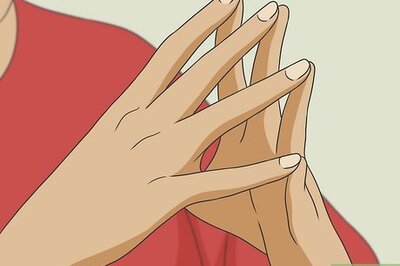
views
Beerwah (Australia): As the hugely popular ''Crocodile Hunter,'' Steve Irwin was zany, even madcap.
But that on-screen persona stood in stark contrast to the serious and astute businessman, who also happened to be a conservationist and TV star.
''He was always so active, and all over the place, but he was actually very focussed in what he believed in, and knew how to get things done,'' said Michael Hornby, head of the Wildlife Warriors charity begun by Irwin.
Irwin, 44, died on Monday after a stingray attack on the Great Barrier Reef.
''When he got his sights set on something he was very action-oriented,'' said Hornby. ''He'd say, 'why sit around, let's fix it'.''
Irwin tried to fix the environment, and apparently spent a lot of his own money doing it.
Irwin and his American-born wife Terri bought up large parcels of land in Fiji, Vanuatu, the United States and in the Australian Outback and devoted them to animal habitats.
Close to home, when he found out koalas and woma pythons were being endangered in an area near the Brigalow Belt in southwest Queensland state, he bought up 33,600 hectares (83,000 acres).
''There was a lot of land clearing, and he wanted to prevent more of it from happening,'' Hornby said Friday. ''He has kept it untouched, off limits to developers, and also uses the site for the release of some native animals into the wild.''
The family, which owns the Australia Zoo flora and fauna park, never divulge much about their finances. But the Internet pledges to Irwin's charity in the four days since he died - more than half a million Australian dollars (US$377,000; 297,000) - indicate his financial clout.
By the one-week anniversary of Irwin's death on Monday, an expectation of A$1 million (US$754,000) in donations to Wildlife Warriors ''was not unrealistic,'' Hornby said.
''He was always very private about that stuff,'' said Hornby. ''He was almost embarrassed by it.''
Wildlife Warriors was founded as a family charity in 2002, and became a public charity requiring tax filings in April of this year. Since then, with partner agencies in the respective countries, it has developed tiger conservation programs in India, Bhutan and Sumatra, Indonesia; elephant programs in Cambodia and Vietnam and a cheetah program in South Africa.
That's in addition to crocodile and koala research in Australia.
Irwin said in many interviews that, at home, he felt he was a victim of Australians' tendency to criticise, rather than celebrate, those who gain fame and fortune.
Irwin was especially criticized in 2004 after he cradled his month-old son Bob while feeding crocodiles at Australia Zoo. Later that year, he was accused of getting too close to penguins and humpback whales in Antarctica while making a documentary. An official investigation recommended no action be taken against him.
Irwin wanted to make sure no one thought his main charity would be a tax write-off.
PAGE_BREAK
The Wildlife Warriors Web site included a posting making clear he paid the administrative bills so that 100 per cent of donated funds went to wildlife programs.
James Thomson, an Australian journalist who has investigated Irwin's earnings, doubts Irwin's empire is in immediate financial danger as a result of his death.
''I would say it's unlikely that he's borrowed against any sort of contractual arrangements just because his income is from a fairly wide variety of sources,'' said Thomson, who writes for the national magazine Business Review Weekly.
Irwin has been on the magazine's annual list of Australia's top 50 income-earning entertainers since 2002, when his gross income for the previous year from television sales, a cameo appearance in the movie ''Doctor Dolittle 2,'' two television ad campaigns and merchandising was estimated at A$16.3 million (US$12.23 million, 9.69 million).
This year, the magazine estimated Irwin had earned A$4.2 million (US$3.17 million) in 2005 from television appearances, lower than his peak a few years earlier.
''Since 2002, he's been concentrating more on his zoo and the output of his programs has declined pretty sharply,'' Thomson said.
Thomson said the income figures were estimates as Irwin's management always declined to comment on them. The figures did not include potential income from Irwin's zoo since that was regarded as outside the category of entertainment revenue.
The zoo has been a top destination for international tourists, and in 2004, Irwin accepted a national tourism award for the family showpiece. Little is known about the zoo's finances, but Australia's department of foreign affairs and trade said in a media release last year that exports accounted for more than 75 per cent of the zoo's earnings.
Visitor numbers aren't clear. But the Foreign Affairs Department said that in 2003, international visitors to Australia Zoo increased by about 15 per cent, employed more than 400 staff and that Irwin had planned to invest more than A$40 million (US$30.27 million) in the next 10 years at the zoo.
Hornby said Irwin used the zoo and his worldwide popularity to push his conservation efforts.
''In putting his life under a magnifying glass, it helped focus his intensity,'' said Hornby. ''It was emulating what he was all about. I think he did a damn good job doing it.''


















Comments
0 comment